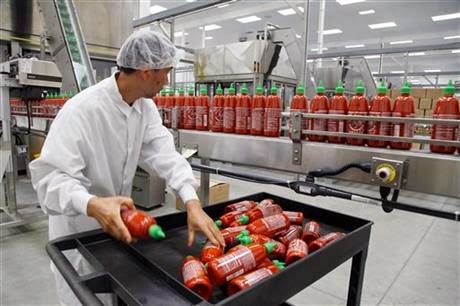Ballot designations matter for candidates
- Many incumbents try to mask that they are incumbents by claiming on the ballot that they are "Doctor/Teacher/Congressman" or "Congressman/Emergency Physician" (yeah, I bet he spends lots of time in the emergency room.)
(Roll Call) - California Republican David Valadao is running for re-election to the 21st District — but you wouldn’t know he’s the incumbent from his ballot designation.
In the Golden State, candidates can choose a short description to accompany their name on the primary and general election ballots. The ballot designation is generally three words, unless it is an official title, and it’s considered an important opportunity to leave a lasting impression on voters before they make their final selection.
[Here is a
brief explainer from the Riverside
Press Enterprise from last year.]
In 2012, Valadao ran as
“Small Businessman/Farmer,” even though he was also serving in the state Assembly at the time. This year, Valadao adjusted his designation slightly to “Farmer/Small Businessman,” but makes no mention if his current office.
On one hand, it’s not surprising considering the historically low job approval ratings of Congress. But Valadao’s decision puts him at odds with the 46 other congressional incumbents running for re-election in California who do mention their office in some form.
“Usually, our thinking is to make the ballot designation as close as possible to the office that you are seeking,” said one Democratic consultant who does extensive work in California. “People like putting a round peg in a round hole.”
 |
Democrat Congressman Raul Ruiz of Palm Desert claims as his
ballot occupation "Congressman/Emergency Physician".
Somehow I doubt he spends very much time in the emergency room. |
But even though 46 members mention their current office, they do it in at least a dozen different ways.
Seven members list “United States Representative,” including two that include their district number, as their ballot designation. Nine members went with “U.S. Representative,” including four with district numbers. Nine other members chose “Member of Congress.” Four used “United States Congressman” and five used a form of “Congresswoman,” including freshman Rep. Julia Brownley’s very specific “Ventura County Congresswoman.”
Republican Kevin McCarthy went with the basic “Representative,” while Republican Darrell Issa and Democrat Susan Davis are using the long, “Member, United States House of Representatives.”
The final batch of nine incumbents couple their current office with another occupation:
- U.S. Representative/Farmer Doug LaMalfa (1st District)
- Congressman/Rancher John Garamendi (3rd District)
- Doctor/Teacher/Congressman Ami Bera (7th District)
- Businessman/Farmer/Representative Jeff Denham (10th District)
- Farmer/Representative Jim Costa (16th District)
- Farmer/U.S. Representative Devin Nunes (22nd District)
- United States Congressman/CPA Brad Sherman (30th District)
- Congressman/Emergency Physician Raul Ruiz (36th District)
- United States Representative/Teacher Mark Takano (41st District)
For Bera, he just tacked on “Congressman” to his ballot designation after he won his race in 2012. Denham adjusted his designation from a couple of years ago, dropping “Businessman” and going with “Farmer/U.S. Representative” for this year.
Candidates can adjust their ballot designation between elections as well.
Last cycle, Republican Rep. Gary G. Miller ran as “Member of Congress” in the 31st District primary, but switched to
“Congressman/Small Businessman” in the general election. In both races, he faced “Independent Small Businessman” Bob Dutton, a Republican who also happened to be a sitting state senator who represented a sizable portion of the congressional district.
Of course, incumbents aren’t the only candidates who get to choose a ballot designation.
In 2012, Democrats were stuck with “Small Business Advocate” John Hernandez in the general election in the 21st District after he finished ahead of Democratic strategists’ preferred choice in the primary. That candidate, Blong Xiong, put “Fresno City Councilman” as his ballot designation, even though it’s not a Fresno district.
 |
Liar, Liar?
Since 1975 Democrat Congressman Jim Costa of Fresno has served full
time in government posts, the State Assembly, Senate and then Congress.
But on the ballot he is listed as "Farmer/Representative". Hey Jimbo,
how many crops have you personally harvested lately? |
This year, Hernandez is running again, but national Democrats have coalesced behind “Farm Policy Advisor” Amanda Renteria. Renteria is former chief of staff to Michigan Sen. Debbie Stabenow and former aide to California Sen. Dianne Feinstein who moved back to California in order to run for Congress in a district dominated by agricultural and water interests.
“Basically, we all just do whatever we can get past the county clerk or the [secretary of state] and if it goes to court, we never have any idea how they are going to rule until they rule,” according to one Democratic consultant who does extensive work in California.
There are a few other ballot designations of note.
In the 25th District, 2012 Democratic nominee Lee Rogers slimmed down his ballot designation to “Doctor” from “Doctor/Educator/Author” two years ago. He’s vying for a general election slot against two top tier Republican candidates.
“Senator/Small Businessman” Steve Knight and “Business Owner” Tony Strickland are running running in the open seat. Strickland ran in the neighboring 26th District last cycle as “Senator,” when he was serving in the state Legislature. Now that he’s no longer an incumbent, he switched his ballot description.
In the 31st District, Democrat Pete Aguilar is making his second run at the seat. This year, he is “Mayor/Business Owner,” which is a slight change from “Business Owner/Councilmember” in 2012.
Former Rep. Joe Baca is also running on the Democratic side, but his ballot designation is “Public Policy Educator.” Candidates are not permitted to include former offices in their designation, so it’s not just an attempt to avoid an establishment label. (In the 7th District, former Rep. Doug Ose is running as “Small Business Owner.”)
Also in the race is Danny Tillman, who may win the award for longest ballot designation. Normally limited to about three words, Tillman is listed as “Member, Governing Board, San Bernardino City Unified School District.”
Out of all the congressional races and ballot designations, I think my favorite is the 2nd District, where Supermarket Cashier Dale Mensing is running as a Republican.
 |
Sikh Congressional Caucus
No ballot occupation can replace face to face relationships and campaigning.
.
Representative Judy Chu (D-CA) and Representative David Valadao (R-CA) announced the launch of the first-ever American Sikh Congressional Caucus. Representatives Chu and Valadao are the Co-Chairs of the Caucus.
.
Congressman Valadao noted, “The Central Valley is home to more than 25,000 Sikhs, the largest population in the United States. Just in my district, California’s 21st congressional district, there are at least seven Gurdwaras,” adding, “I am excited and honored that I will be able to represent the Sikh community in Washington and am looking forward to working with my colleagues to address the unique issues this community faces.”
(Saldef.org/news) |










































